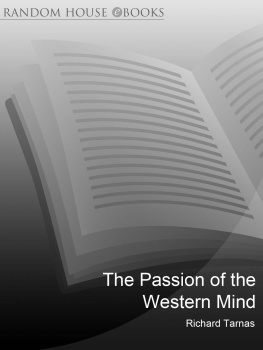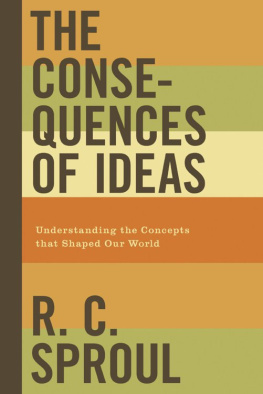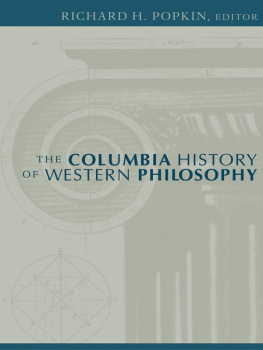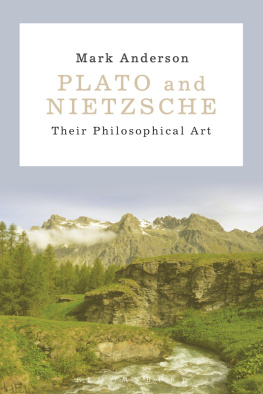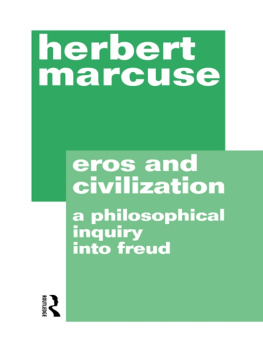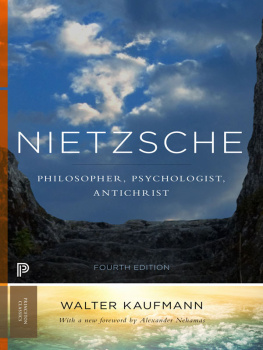ABOUT THE AUTHOR
Richard Tarnas is a professor of philosophy and cultural history at the California Institute of Integral Studies in San Francisco, where he founded the graduate program in Philosophy, Cosmology, and Consciousness. He also teaches archetypal studies and depth psychology at Pacifica Graduate Institute in Santa Barbara. Born in 1950 in Geneva, Switzerland of American parents, he is a graduate of Harvard University and Saybrook Institute. His most recent book, Cosmos and Psyche: Intimations of a New World View, received the Book of the Year Prize from the Scientific and Medical Network in the UK.
THE PASSION OF THEWESTERN MINDUnderstanding the ideas that have shaped our world viewRichard TarnasPIMLICO
This eBook is copyright material and must not be copied, reproduced, transferred, distributed, leased, licensed or publicly performed or used in any way except as specifically permitted in writing by the publishers, as allowed under the terms and conditions under which it was purchased or as strictly permitted by applicable copyright law. Any unauthorised distribution or use of this text may be a direct infringement of the authors and publishers rights and those responsible may be liable in law accordingly.
Epub ISBN: 9781407053998
Version 1.0
www.randomhouse.co.uk
Published by Pimlico 2010
2 4 6 8 10 9 7 5 3 1
Copyright Richard Tarnas 1991
Richard Tarnas has asserted his right under the Copyright, Designs and Parents Act 1988 to be indentified as the author of this work
This book is sold subject to the condition that it shall not, by way of trade or otherwise, be lent, resold, hired out, or otherwise circulated without the publishers prior consent in any form of binding or cover other than that in which it is published and without a similar condition, including this condition, being imposed on the subsequent purchaser
First published in the USA in 1991 by Crown
First published in the UK in 1996 by Pimlico
Pimlico
Random House, 20 Vauxhall Bridge Road,
London SW 1V 2SA
www.vintage-books.co.uk
Addresses for companies within The Random House Group Limited can be found at: www.randomhouse.co.uk/offices.htm
The Random House Group Limited Reg. No. 954009
A CIP catalogue record for this book is available from the British Library
ISBN 9781845951627
The Random House Group Limited supports The Forest Stewardship Council (FSC), the leading international forest certification organisation. All our titles that are printed on Greenpeace approved FSC certified paper carry the FSC logo. Our paper procurement policy can be found at www.rbooks.co.uk/environment
Printed and bound in Great Britain by
CPI Mackays, Chatham ME5 8TD
To Heather
Preface
This book presents a concise narrative history of the Western world view from the ancient Greek to the postmodern. My aim has been to provide, within the limits of a single volume, a coherent account of the evolution of the Western mind and its changing conception of reality. Recent advances on several frontsin philosophy, depth psychology, religious studies, and history of sciencehave shed new light on this remarkable evolution. The historical account presented here has been greatly influenced and enriched by these advances, and at the end of the narrative I have drawn on them to set forth a new perspective for understanding our cultures intellectual and spiritual history.
We hear much now about the breakdown of the Western tradition, the decline of liberal education, the dangerous lack of a cultural foundation for grappling with contemporary problems. Partly such concerns reflect insecurity and nostalgia in the face of a radically changing world. Yet they also reflect a genuine need, and it is to that growing number of thoughtful men and women who recognize such a need that this book is addressed. How did the modern world come to its present condition? How did the modem mind arrive at those fundamental ideas and working principles that so profoundly influence the world today? These are pressing questions for our time, and to approach them we must recover our rootsnot out of uncritical reverence for the views and values of ages past, but rather to discover and integrate the historical origins of our own era. I believe that only by recalling the deeper sources of our present world and world view can we hope to gain the self-understanding necessary for dealing with our current dilemmas. The Wests cultural and intellectual history can thus serve as a preparatory education for the challenges that face us all. Through this book I have hoped to make an essential part of that history more readily accessible to the general reader.
Yet I also simply wanted to tell a story I thought worth telling. The history of Western culture has long seemed to possess the dynamics, scope, and beauty of a great epic drama: ancient and classical Greece, the Hellenistic era and imperial Rome, Judaism and the rise of Christianity, the Catholic Church and the Middle Ages, the Renaissance, Reformation, and Scientific Revolution, the Enlightenment and Romanticism and onward to our own compelling time. Sweep and grandeur, dramatic conflicts and astonishing resolutions have marked the Western minds sustained attempt to comprehend the nature of realityfrom Thales and Pythagoras to Plato and Aristotle, from Clement and Boethius to Aquinas and Ockham, from Eudoxus and Ptolemy to Copernicus and Newton, from Bacon and Descartes to Kant and Hegel, and from all these to Darwin, Einstein, Freud, and beyond. That long battle of ideas called the Western tradition has been a stirring adventure whose sum and consequence we all bear within ourselves. An epic heroism has shone forth in the personal struggles of Socrates, of Paul and Augustine, of Luther and Galileo, and in that larger cultural struggle, borne by these and by many less visible protagonists, which has moved the West on its extraordinary course. There is high tragedy here. And there is something beyond tragedy.
The following account traces the development of the major world views of the Wests mainstream high culture, focusing on the crucial sphere of interaction between philosophy, religion, and science. Perhaps what Virginia Woolf said of great works of literature could be said as well of great world views: The success of the masterpieces seems to lie not so much in their freedom from faultsindeed we tolerate the grossest errors in them allbut in the immense persuasiveness of a mind which has completely mastered its perspective. My goal in these pages has been to give voice to each perspective mastered by the Western mind in the course of its evolution, and to take each on its own terms. I have assumed no special priority for any particular conception of reality, including our present one (which is itself multiple and in profound flux). Instead, I have approached each world view in the same spirit that I would approach an exceptional work of artseeking to understand and appreciate, to experience its human consequences, to let its meaning unfold.
Today the Western mind appears to be undergoing an epochal transformation, of a magnitude perhaps comparable to any in our civilizations history. I believe we can participate intelligently in that transformation only to the extent to which we are historically informed. Every age must remember its history anew. Each generation must examine and think through again, from its own distinctive vantage point, the ideas that have shaped its understanding of the world. Our task is to do so from the richly complex perspective of the late twentieth century. I hope this book will contribute to that effort.
R. T.
The world is deep:

